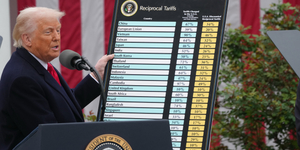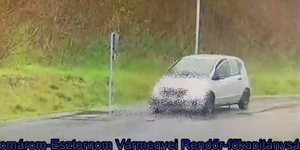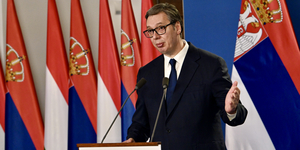Compared to the UK, with 3,500 road deaths per year, at first sight this might not seem so bad. Except that the UK has six times the population, and is far more dependent on road transport than Hungary.
In fact, the UK has the best road safety record in the European Union. For when measured in terms of deaths per car-kilometers travel, you are five times more likely to die in a car in Hungary than in the UK, according to a recent EU report.
Not all road accidents are the fault of drivers, of course; children run into traffic, trees are blown down onto cars, etc. Nonetheless, visitors to Hungary, especially from the UK, are often scathing when it comes to driving standards.
As one British police driving-instructor put it last year to the Budapest Sun, the English language weekly; “I would say that Hungarian drivers are the most aggressive I've ever seen.”
For Magyar driving culture appears dominated by men whose macho-based self-esteem can only be fulfilled by roaring off from traffic lights, swerving in and out of lanes and braking at the very last moment. Unable to bear the sight of a car in front of them, they win bonus points in their deluded self-rankings if they do all this holding a mobile to their ears.
Deaths, of course, are only the most obviously tragic part of the problem.
Thousands more are injured, many permanently, on the roads every year. And even if you are one of the (many) careful Hungarian drivers, you may well become a victim of some bad driver swerving in front of you.
All this has a cost. Thousands of police, court staff and medical workers are tied up with sorting out road accidents and their victims instead of fighting what might be termed “real” crime and sickness.
In addition, the victims of road accidents include many in their 20s and 30s, an age in which state investment in terms of education is at its maximum, while the payback, in the form of taxes and, hopefully, “good citizenship” is only just beginning.
In the recent election campaign, I failed to see any politician appealing for better driving, which is interesting in view of the right wing's supposed concern for the population decline.
But if the politicians don’t feel there are votes in road safety, help is at hand from the private sector.
This month MOL and Magyar Suzuki, working with the police and Magyar Autoklub, kick off a 6-month nation-wide road safety campaign, aiming to raise awareness to “several thousand” citizens - from expectant women and kindergarten workers to children and drivers of all ages.
This is all part of the private sector’s “social responsibility” drive, an area where MOL, in particular, has starred in recent years, the oil company initiating numerous projects in the environment and society of which it can be proud.
So MOL and Suzuki can pat each other on the back.
Except, it would seem, that at neither company is the left hand is aware of what the right is up to.
How else can one explain the MOL advert on Hir TV, which, in the very best macho magyar devil-may-care driving style, stars a speeded-up journey around Budapest? Not exactly corporate encouragement for careful driving, is it?
If that is not hypocritical enough, consider the bright young couple in the Suzuki promotion (see Sport 1) who regularly race through the capital’s streets and across the Danube to their bright new Buda home. It’s all smiles and Suzukis in the celluloid promotion world – but in the real one it’s all too often blood and bodies on Erzsebet Bridge.
Zsolt Hernadi, MOL executive chairman, says a company can’t be responsible for the driving culture of a whole nation. Quite right.
But if a brewery encouraged drivers to drink and drive, it should, arguably, be prosecuted by the state.
If the law-enforcers here aren’t too busy trying to find the guilty partners in road accidents, perhaps they should extend such thinking to companies that promote macho magyar driving.

















